The Industry Seminar Series is a new series at Pritzker Molecular Engineering that brings professionals to UChicago to discuss industry trends, as well as provide students and postdocs opportunities to make external contacts, ask about career options, and seek advice on job transitions. The events are free and open to the public.
International Space Station Overview & Technology Innovation When Your Life Depends Upon It
One of the most complex and expensive objects ever made is a lab that fewer than 350 people have ever seen. The U.S. National Laboratory on the International Space Station is just that, a laboratory. It provides us access to a unique place to observe the earth, expose materials to and gather samples from space and it provides us a place to explore the physical properties of materials in a micro-gravity environment. The International Space Station-National Lab and the opportunity to do chemical research on station will be presented by CASIS (the Center for the Advancement of Science In Space). In addition to chemical studies performed on station, we will also focus on Life Support systems that are incorporated into the Space Station Lab. The hope is that individuals will come away with a new appreciation for the on-station environment and consider developing their own technology and research to be run on the International Space Station.
Kenneth Savin is currently a director of scientific partnering at the International Space Station U.S. National Lab. In this role he searches for and recruits investigators and companies to do research on the International Space Station. He helps the investigators develop their experiments and guides them through the process of getting the experiment flown and returned and the information disseminated. This role is as much about science as it is about inspiring others to look at their science in a new way and use the experience to innovate and explore.
Related documents
- Concept Risk and Compliance Certification Form
- ISSNL Concept Summary Template
- The Proposed Alliance ISS Nat Lab and U of Chicago

Ken Savin of Novecept
Distilling the Essence of Craft Spirits
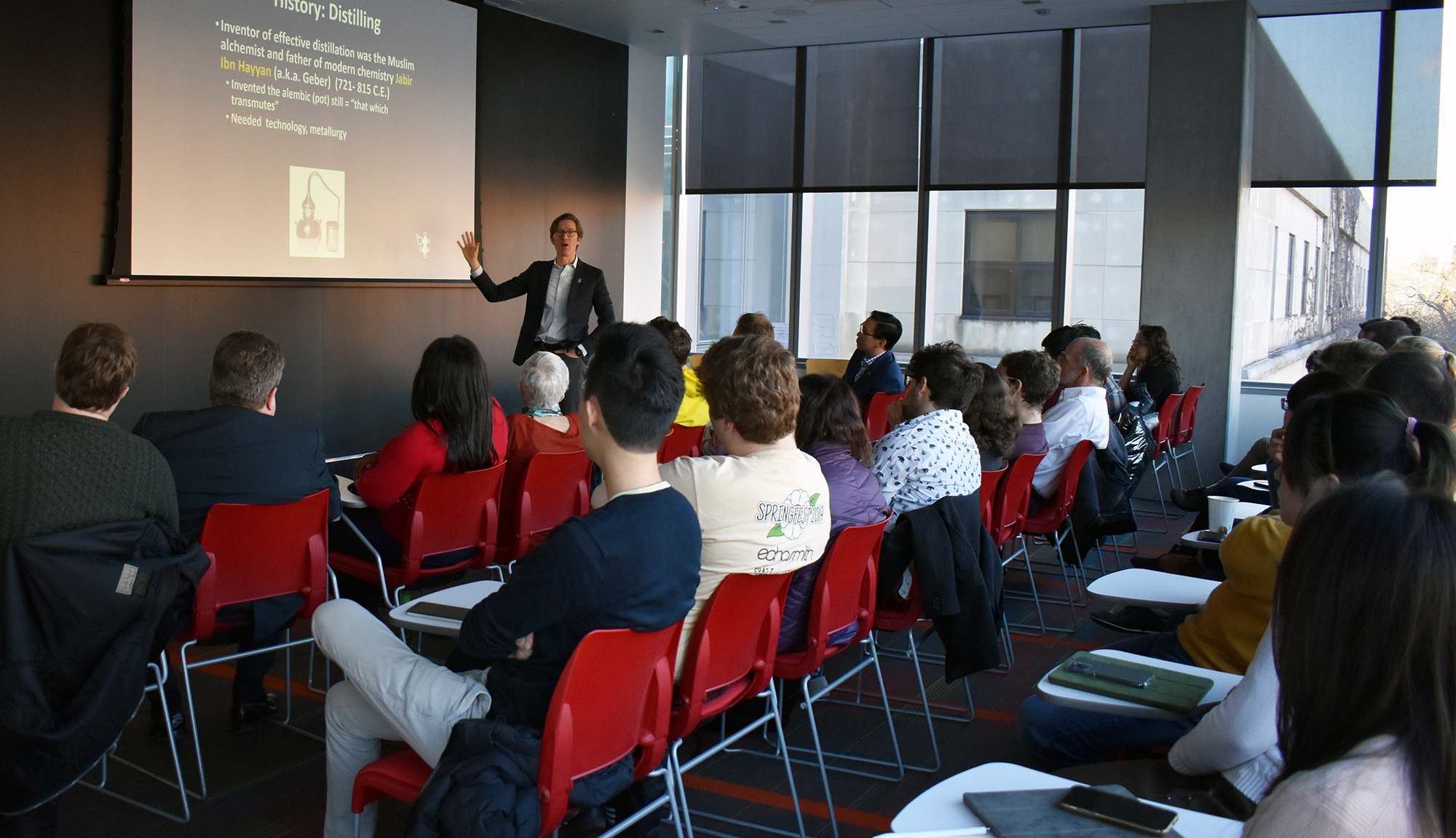
Distilling is an ancient art invented by the proto-scientist alchemists of the Islamic Golden Age. The technology has been applied to produce industrial chemicals, but is perhaps best known for producing tasty alcoholic beverages that serve to both preserve valuable agricultural products as well as inebriate those inclined to do so. Recent years have seen a renaissance of humanized (craft) distillation in the United States characterized by small scale production facilities and innovation through connection to a location’s unique geographic and community structures. Prof. Ian Glomski will open with a short history of distillation, followed by discussion of his personal experience building a start-up craft distillery, and then close with perspectives on his distillery, Vitae Spirits, and the craft spirits industry as a whole.
Dr. Ian Glomski is former professor of microbiology at the University Of Virginia School Of Medicine with a PhD in molecular and cell biology from the University of California, Berkeley and postdoctoral training at the Institute Pasteur in Paris, France. Ian has had a profound fascination for over thirty years for microbes and how they sculpt our macroscopic world. An experienced brewer, winemaker, cheesemaker, meat curer, kefir culturer, pickler, wild mushroom forager, and infectious disease specialist, anything having to do with microbes catches his fancy. Considering this constellation of interests, founding a distillery just seemed like his destiny. Since 2015 Ian has been building and running the award-winning Vitae Spirits Distillery in the city of Charlottesville, Virginia, which concentrates on sugar cane-based spirits production from molasses to glass.

Ian Glomski of Vitae Spirits
Space Technologies: The Coming Economy of Space Resources
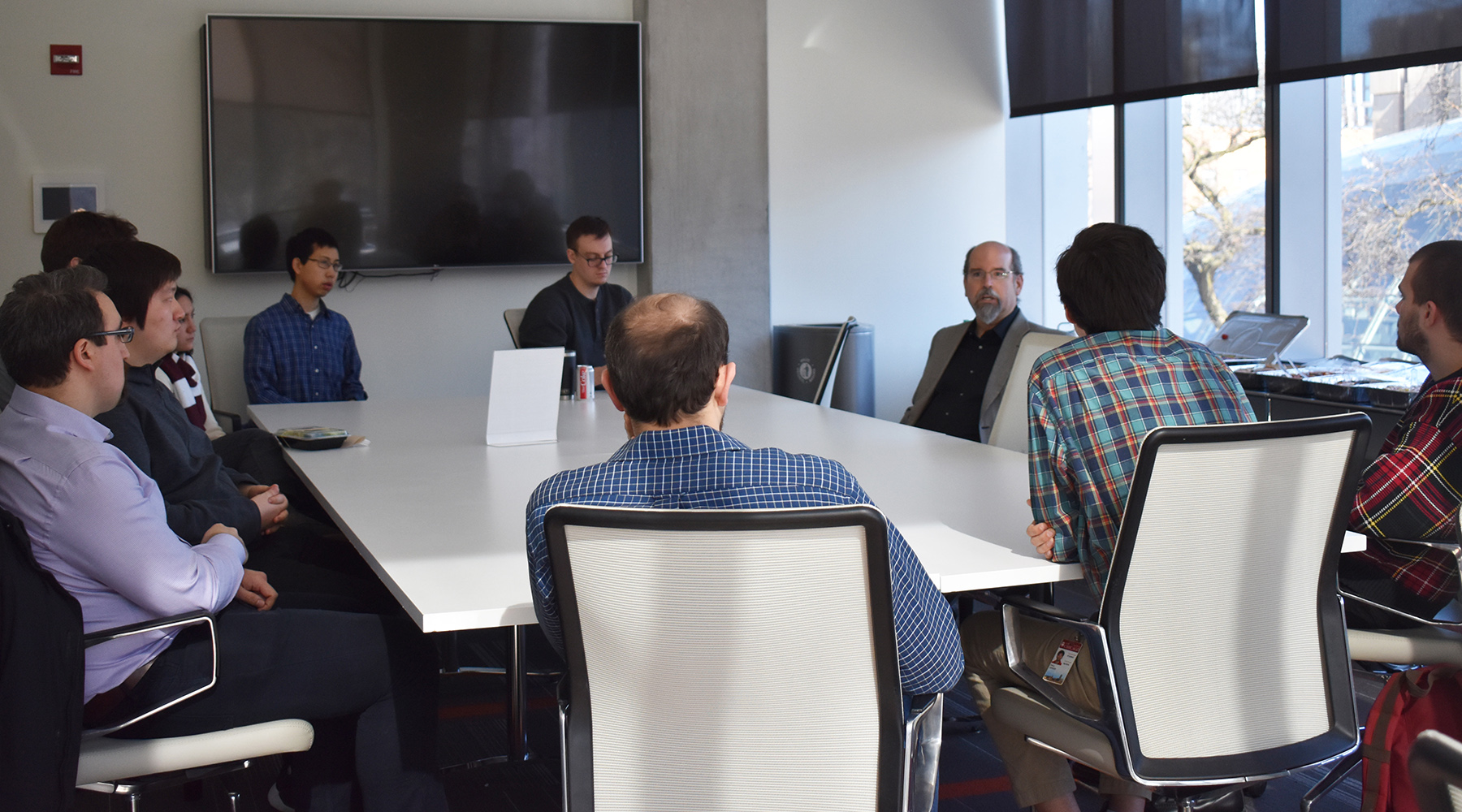
David Hurst is a technology entrepreneur, having founded multiple successful technology companies. He also has over 30 years of experience in software engineering, developing complex systems, managing software development teams, and delivering products. He has performed technical due diligence and business strategy assessments for venture capital firms and advanced technology start-ups. In 2013, he left the IT industry to follow his passion for space exploration. Mr. Hurst founded Orbital Transports to develop the space logistics and orbital infrastructure technologies needed for the emerging economy of space resources—and ultimately support human settlement of the Solar System. Hurst performs systems engineering and project management for small satellite space missions. He is a contributor to the INCOSE Space Systems Working Group CubeSat System Reference Model and develops MBSE practices for small satellite missions. As an advocate of space-related and space-scalable business, he founded the NewSpace Chicago community of space entrepreneurs and others engaged in building commercial space ventures in Chicago. Hurst graduated from Northwestern University with a bachelor's in electrical engineering and computer science and has received four patents.

David Hurst, Orbital Transports
Innovation in industrial materials science
The goal of industrial materials R&D is to develop new materials and processes that fulfill the needs of tomorrow. It’s important to every industry that actually makes things. You can’t know what’s coming along in the future, but somehow you have to be ready for it and be a part of creating it. How do people figure out what is worth working on, years ahead of when the technology is actually needed? This talk will describe what innovation is like at a company that has been producing important materials innovations for decades and share some insights about what works and what doesn’t.
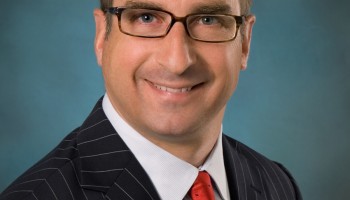
Mike Pambianchi
Matthew is passionate about leveraging technology to deliver a sustained impact on the planet and our society. This enthusiasm led him to Nature’s Fynd after working in venture capital and banking. Nature’s Fynd, a biotech startup commercializing novel methods to grow proteins for food. Before co-founding Nature’s Fynd, he worked as a member of the investment team at First Green Partners, an energy and chemicals-focused venture firm founded in partnership with Warburg Pincus. As a venture investor in early-stage companies focused on agriculture and energy, Matthew experienced firsthand the struggles and rewards of commercializing technologies that both challenge convention and create sustainable solutions that disrupt the food industry in a positive way.

Matthew Strongin
The World’s Increasing Unsatiable and Unsustainable Appetite for Meat: Solutions and an Unlikely Career Journey from Microbiology to Clean Meat
By 2050, estimates suggest that the number of people on the planet will have increased by 2 billion, from 7.7 billion to 9.7 million – and could peak at nearly 11 billion at the turn of the century. But the demand for more meat isn’t only fueled by our growing population – economic development and the expanding middle-classes are also important factors. Put simply, as people get richer, they can afford – and want – to eat more meat. Estimates suggest that by 2050, the demand for meat and milk will grow by a staggering 70%. And it’s a similar story when it comes to seafood – we are now eating more than double the amount of fish than we did 50 years ago Eliminating the need to breed, raise and slaughter animals for food, clean meat – which is also known as cultured, cultivated or cell-based meat– offers a way to reduce the environmental impact of traditional meat production
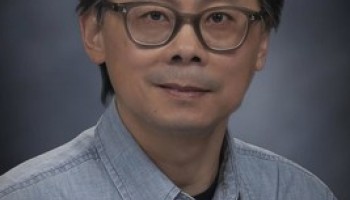
Dr. Shou Wong
Topic: To exascale and beyond: challenges and opportunities for the most powerful computers ever created
Some time between now and 2023, the world's first exascale supercomputer will be deployed, with a mission to deliver scientific breakthroughs in everything ranging biochemistry to cosmology, as well as applied use cases in mechanical and nuclear engineering. While this is just another mark on the exponential growth in computing power over the past 50 years, exascale is different in that we are simultaneously reaching the limits of nanoscale engineering of semiconductors and the cost ceiling for power consumption of such systems. I will talk about the scientific breakthroughs enabled by really big computers and what programming methods are used to build the software behind these breakthroughs.
Dr. Jeff Hammond is a Principal Architect NVIDIA, where he builds software for NVIDIA's data center technology, including GPUs and ARM CPUs. Previously, he worked in the Intel Data Center Group, Intel Labs and Argonne National Laboratory, on a range of projects related to computational science, parallel computing and supercomputer architecture. He has made significant contributions to the development of open-source software and open standards for parallel programming, including NWChem and MPI. Jeff received his PhD in Chemistry from the University of Chicago, where he was a Department of Energy Computational Science Graduate Fellow.

Dr. Jeff Hammond
Topic: Biotech without borders: global networks powering virtual companies
Grant Belgard is the founder, CEO, and chief scientist of The Bioinformatics CRO and heads the bioinformatics and information systems teams at bit.bio. He previously earned bachelors degrees from Rice in physics, chemistry, chemical physics, biochemistry, and cell biology. A doctorate in physiology, anatomy, and genetics from Oxford as a Marshall Scholar with joint training at the NIH. Dr. Belgard did postdoctoral work at UCLA and Oxford and worked as a research scientist in biotech. He hosts The Bioinformatics CRO Podcast.
Topic: From Nanoliters to Milliliters and Everywhere in Between
The field of “microfluidics” is booming, but what does that really mean? Are we talking about micro-volumes? Micro-flow rates? Micro-accuracy and precision? Droplets or continuous streams? What are the fluids we want to move around, and how do we build the instruments and devices to do it? I will talk about my career as a microfluidics engineer involved in early-stage innovation at biotech and pharmaceutical companies. I’ll share successes and failures, and will seek to convey a sense of the wide-range of opportunities available in this extremely diverse and interesting field.
Daniel Hartmann received a BS in electrical engineering from Cornell University in 1995, and went on to complete a Ph.D. program at the University of California at San Diego in applied engineering physics in 2001. In industry for 20 years, he has worked at a small biotech start-up, a mid-sized original equipment manufacturer, and two fortune-500 pharmaceutical companies.

Daniel Hartmann
Dr. Moore began his career with Johnson Polymer in 1998, and worked in research and development until the organization’s acquisition by BASF. He was then assigned to a Sr. Group Leader position in the raw materials for coatings organization where he served for 4 years in various roles developing novel coatings technologies. Following this role, Dr. Moore worked in the High Temperature Polymerization Group (a Global Technology team) of BASF as a Sr. Research Associate. In 2011, Dr. Moore decided to choose a new career challenge and moved to Avery Dennison, where he served as a Principal Scientist in the Platform Technologies group. There, he became involved in the development of new technology platforms for the various product development teams. This role encompassed technology strategy development and the use of both internal and open innovation platforms. He then took roles in Patent Licencing, Venture Investing and now building and managing a team in Open Innovation.
Dr. Moore’s current role is in managing the newly formed Open Innovation Studio. In this role, he has used his prior experience, chemistry expertise and strategy development skills to help build and grow our innovation culture, Open Innovation tools, and strategies for development and execution of new platforms in order to develop new Innovations for Avery Dennison.
Dr. Collin Moore received his BS in Chemistry from Grove City College, Grove City PA. His PhD was awarded by the University of Akron College of Polymer Science and Polymer Engineering in Akron, OH. He is married with 4 children and enjoys a cappella music, reading, fitness and board games.

Dr. Collin Moore
Dr. Hansen is a world-renowned expert in naturally occurring and manmade radiation effects found in defense, civil and commercial space programs, with a primary focus on radiation-induced degradation of semiconductor devices. During his 20+ year career, Dr. Hansen has published over 50 papers. His research covers radiation effects on a variety of technologies, including non-volatile memories, CMOS ASICs, SiGe, InP, and photonic devices, as well as the development of models to predict those effects on orbit.
Prior to joining Space Micro, Hansen worked at Data Device Corporation, Maxwell Technologies, NASA’s Jet Propulsion Laboratory (JPL), and The Boeing Company, where he was an Associate Technical Fellow.
Hansen earned his Ph.D. in Physics from the University of Nevada, Las Vegas (UNLV), an M.S. in Physics from UNLV, and a B.S. in Physics from Cal Poly, San Luis Obispo.

Dr. David Hansen
Topic: Water in Energy: Challenges and Opportunities for Improved Sustainability in a Time of Transition
Rob Bruant is director of product for B3 Insight, a technology firm specializing in the collection, aggregation, and analysis of water use data, with an emphasis on extractive industries. Previously, Rob served in various roles for BP and Pioneer Natural Resources, including strategy manager, subsurface manager, reservoir engineer, and petroleum systems analyst. Rob also held positions of instructor and research associate in the Department of Civil and Environmental Engineering at Princeton University, focusing on carbon sequestration and groundwater remediation.
Rob holds a BA in Geosciences from Franklin and Marshall College, a PhD in Hydrology from the University of Arizona, and an MBA from the University of Chicago's Booth School of Business. He is membership chairperson for the Society of Petroleum Engineers (SPE) Carbon Capture, Utilization, and Sequestration (CCUS) Technical Section, vice-chairperson for the Texas Water and Energy Institute Advisory Board, and a member of the Produced Water Society Board of Directors. He is the recipient of SPE's Outstanding Technical Editor, Regional Service, Regional HSSE, Section Service, and Engineer of the Year awards. Rob is a licensed professional geoscientist, professional hydrologist (ground water and water quality), and certified petroleum engineer.
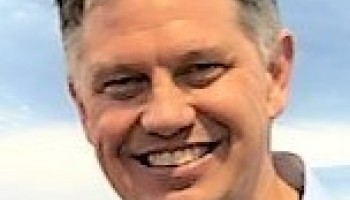
Dr. Rob Bruant
Topic: The Lab-To-Fab Journey with Atoms: R&D at the Intersection of Academia and Industry
In this talk, the Lab-to-Fab-to-Market journey is discussed with some specific examples mainly from the multi-disciplinary fields of semiconductor materials and opto-electronics devices. That also involves briefly discussing the following topics:
- Working in an R&D position in a hard-tech startup or small business as opposed to academia or a major corporation.
- The typical misconceptions and challenges when it comes to commercializing a lab-developed technology
- How and when to get your technologies out of the lab/university?
- What skills to pack in your “toolbox” to be successful when leaving the university?
- How to fund it for free?
The technical aspect of this presentation will focus on the most efficient blue/UV LEDs and solar cells ever created. We present how engineering atoms in a bottom-up approach can boost the performance of such an opto-electronic device. Furthermore, the application of such revolutionary devices will be discussed in the fields of solid-state lighting and telecom, and space exploration will be discussed. It will be discussed how engineering such novel materials at atomistic scale will not only have huge scientific or economic impact but also societal impact.
Kamran Forghani received his PhD (Dr.-Ing.) from the Institute of Opto-Electronics at the University of Ulm in Germany (2012). He also graduated from the interdisciplinary MSc program in Advanced Materials (Nano-Materials) from the University of Ulm, after receiving his BSc in Physics from the University of Science and Technology in Tehran. He served as a postdoctoral research scientist at the University of Wisconsin-Madison (USA) through a joint position at the departments of Chemical and Biological Engineering (CBE), Electrical and Computer Engineering (ECE). Forghani’s interdisciplinary research interests include (but not limited to) defects management in semiconductors, novel epitaxial growth and processing methods to realize next-generation (opto-)electronics devices such as LEDs, lasers, solar cells, transistors, and sensing devices. Currently, he is the technical lead at Novinoor LLC, a company focused on commercializing novel 3D sensing solutions for enhanced autonomy and decision making in various platforms. He also holds a research position (part time) at Northwestern University.

Dr. Kamran Forghani
Title: From a Physics Ph.D. to CEO of Offensive Security - My Career Journey from Academia to Business
Ning Wang is the CEO of Offensive Security, the provider of the world-class cybersecurity training and certifications with the industry gold standard OSCP and the widely used Kali Linux. Ning will share her experience and career journey on how she transitioned from completing her Ph.D. in physics from Berkeley to a postdoc at Caltech and to management consulting at McKinsey & Co. Ning worked at several startup companies as CFO/CTO/COO at lynda.com, now LinkedIn Learning, and as CFO/COO at HackerOne, the world’s leading bug bounty platform, before becoming CEO at OffSec.
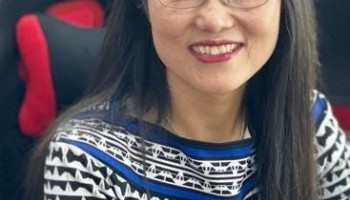
Topic: Smart Contact Lens System for AR & VR as well as Psychometric Applications
Mr. Shtukater and RaayonNova, are developing futuristic and revolutionary technology of AR & VR enabled smart contact lens system (SCL) with an embedded display. SCL intimately plugs into the sense of sight to deliver information in an enabling and enriching fashion. We believe such smart contact lens system has the potential to become the major AR & VR platform and eventually, in the long run, completely replace most smart devices such as smart phones, iPads, Oculus and HoloLens, MagicLeap sets, while becoming the main means of executing AR or VR applications...
Mr. Shtukater is a seasoned innovator and an entrepreneur with 20 years of professional experience in Tech development and innovation, Software Engineering, Project Management, and team-leading background. An accomplished serial tech inventor and a patents holder. Inventor and developer of AR & VR enabled SCL (Smart Contact Lens) technology; Mr. Shtukater founded RaayonNova, an AR & VR enabled smart contact lens tech development Company. He is an internationally recognized speaker on AR & VR technologies; presented at various IDTechEx conferences domestically and internationally. Currently, an active Judge of MIT IIC and MIT EF.

Finding a career in science
Michelle Hoffmann has been serving since August of 2021 as the Executive Director of the Chicago Biomedical Consortium (CBC), a consortium of biomedical researchers across Northwestern, the University of Illinois at Chicago, and the University of Chicago that is generously supported by the Searle Funds at The Chicago Community Trust. The CBC’s mission is to stimulate collaboration among scientists to accelerate discovery that will transform biomedical research and improve the health of humankind. Prior to this role, from 2019-2021, Hoffmann was the senior vice president of Deep Tech at P33, a privately funded nonprofit charged with elevating Chicagoland’s innovation economy and driving inclusive economic growth.
Prior to P33, Hoffmann spent 15 years helping life sciences companies grow, most recently as a senior vice president at Boston-based Back Bay Life Science Advisors, an integrated strategy and investment firm to global life science companies and their investors. During her 8 years at Back Bay, Hoffmann led projects for large, publicly traded companies, as well as small, private, venture-backed health care and life sciences companies. Hoffmann also worked closely with Back Bay’s investment team on two large transactions: an epigenetics platform that was sold to Gilead Pharmaceuticals for $65M and an agent to combat acute kidney injury that was acquired by AbbVie for $110M. Previously, she was senior manager, Center for Health Solutions and Pharmaceutical Market Lead, at Deloitte Research. Hoffmann also worked for Leerink Swan Strategic Advisors as a consultant/project manager, Capgemini/LECG as a consultant in their life sciences healthcare practice and at Fuld+Company as a senior analyst in Fuld’s healthcare practice.
Hoffmann earned a PhD in molecular and cellular biology from the University of California Berkeley with Professor Joshua Kaplan and completed a postdoctoral fellowship at Brandeis University in the laboratory of Professor Gina Turrigiano.

Innovating for the next semiconductor breakthroughs
Advanced microchips are in many of the familiar products we use every day – from mobile phones and computing devices to entertainment systems and increasingly “smart” cars—and virtually every leading-edge device has been made using Lam equipment. Demand for faster, smaller, more powerful, and energy-efficient electronics is driving the fabrication of advanced devices with fine, closely packed features and complex 3D structures. Our innovative technology and productivity solutions deliver a wide range of wafer processing capabilities needed to meet those demands. I will introduce our technology and some of the process and materials challenges that we need to solve to enable the next semiconductor breakthroughs.
Dr. Nerissa Draeger is a senior innovation leader in the semiconductor industry. Her interests lie at the intersection of emerging technologies, strategy, communications, and people. In the Office of the CTO at Lam Research, Dr. Draeger guides implementation of Lam’s technology vision through open innovation. As Director of Global University Engagements, she enables new solutions for semiconductor fabrication through academic collaborations and leads partnerships to create diversity in Lam’s technology and talent pipelines. In prior roles, Dr. Draeger managed programs on materials for advanced devices, new process and product development, strategic business and intellectual property development. She earned a Ph.D. in materials science and engineering from the University of Illinois, Urbana-Champaign, and a B.S.E. from the University of Michigan. She currently serves on the board of directors for the Materials Research Society (MRS) and UIDP.

Arthur Curran, from Citrus and Allied Essences, will be telling us about his career and company. He will talk about the sciences of essences, tastes, and smells.

Title: Leaving the Lab
Abstract: PhD programs are designed to groom the next generation of faculty. For some, this objective aligns with their purpose for pursuing an advanced degree - starting their academic career. Others may find academia isn’t the path they want to follow. And that’s okay! In this talk, we’ll examine lessons that I’ve learned regarding “leaving the lab” that are relevant to all. For those with an interest outside academia, I’ll discuss my own journey in pursuing a career outside academia and highlight lessons learned along the way. For those that find academia agrees with you, we’ll discuss important considerations in helping your research leave the lab based on my experience in technology transfer and early-stage technology commercialization. The hope is that everyone takes away something useful regardless of their professional goals.
Bio: Cole is dedicated to supporting the translation of novel science into meaningful commercial and societal impact. He has held roles in the academic, corporate, and non-profit sectors, namely at the University of Chicago, Baxter, and P33, that all shared a focus on early-stage technology commercialization and open innovation. He enjoys leveraging his network and experiences in corporate innovation, intellectual property management, and new venture strategy to help early deep tech startups increase their likelihood of success. Cole earned a Ph.D. in Molecular Biology from the University of Michigan, an MS in Biomedical Engineering from Washington University in St. Louis, and a BSE in Biomedical Engineering from Tulane University. He also recently completed an MBA at the University of Chicago Booth School of Business.

Title: Nanobubbles - Reinventing Liquidity
Abstract:
This talk will explore how gas nano-bubbles in solvents, often water, can be used to improve energy efficiency and environmental sustainability across a whole host of end-use applications - ranging from water treatment, agriculture and aquaculture to oil-and-gas applications. We shall explore how particular exciting new methods of generating thick-skinned, long-lived nano-bubbles offers transformative possibilities in enabling such nano-gasification of water and solvents to improve sustainability, as well as examining commercial pathways.
Niall English completed a PhD in 2003 at UCD (Dept. of Chemical Engineering) on electric-field effects on crystallisation. During 2004-2005, Niall carried out further studies on crystallisation and water and metal oxides at the National Energy Technology Laboratory, a DOE national lab, in conjunction with Dept of Chemical Engineering at the University of Pittsburgh. During 2005 to 2007, he worked for the Chemical Computing Group in Cambridge, GB. Here, Niall developed molecular simulation codes, protocols and methods for biomolecular simulation, used chiefly in structure-based drug design applications in the pharmaceutical industry. Niall commenced his position as a lecturer at UCD Chemical Engineering in 2007, being promoted to senior lecturer in 2014 and professor in 2017. He is currently lecturing on chemical-engineering design, thermodynamics, experimental design, process control and molecular simulation, as well as coordinating final-year and Masters-level research projects. He is the director for the Chemical-Engineering MEngSc programme, and the upcoming one on Engineering of Advanced Interfacial Materials. His research interests encompass nanoscience (such as nano-bubbles), energy and materials - e.g., gas hydrates, solar and renewable energies, and simulation of electric-field effects on (nano)materials and biological systems. He has a special interest in water, whether in the bulk or at interfaces or in (nano-)confined systems. He is also co-founder of two campus spin-out companies, BioSimulytics and Aqua-B.
In this seminar, Chuck Meek will demonstrate a simple process to create a business model and platform from which to launch a new technology: to the right market, with the right people and the right financial backing.
In 2020 Chuck Meek launched an innovative new business model: Solve for X, L3C is a Research & Development platform specifically designed to align and coordinate Philanthropic, Private Capital, Academic, and Industrial enterprises. As an L3C, Solve for X is a ‘social enterprise,’ which qualifies the firm to accept private foundation grants as a 501(c)3 proxy for Phase 1 proof of concept and Beta/pilot testing, before moving into Phase 2 with impact investors. Phase 1 allows us to ‘de-risk’ the model, which lowers Phase 2 cost of investment capital from VC to PE levels.
He is a vocal advocate for environmental stewardship, especially for freshwater ecosystems, and has led collaborative contract research initiatives on multiple topics, including:
- Economic Impacts of Emerging Contaminants on Industry - Case Study in Environmental Insurance
- Economic Impacts of Emerging Contaminants on Brownfield Real Estate Redevelopment
- Economic Impacts of Emerging Contaminants on Municipal Bio-Solids Disposal Models
- Scalable Water Purification System using Electrophysics, Integrated Ionization & Magnetic Separation
- Rapid In-situ PFAS Diagnostics Using Gas Chromatography/Tandem Mass Spectrometry
Chuck mentors post-graduate researchers and post-doctorate scientists at The University of Chicago – Pritzker School of Molecular Engineering, helping them reframe their esoteric theses and dissertations in terms and language of private capital and industry audiences.
He is a Board Director for TCNewTech, a platform for innovation and economic growth in the Traverse City, MI region, and a mentor for the Water Innovation Lab in Toronto, Canada.
In addition to advocating for environmental stewardship, Chuck has been active in long-term affordable housing policy as well as short-term shelter needs for the homeless.
He earned his bachelor’s degree in Russian Studies from The University of Chicago. He then served as a U.S. Navy Officer, deploying in the western Pacific and Indian Ocean theatre, after which he earned his MBA in Finance from The University of Chicago – Booth School of Business.
Title: The Innovation Renaissance: Implications for University-Industry Collaborations
We are entering a new age of innovation. An innovation renaissance is on the horizon, fueled by the perfect storm of rapid changes in select scientific fields, new government spending programs, and macroeconomic shifts converge to significantly alter how innovation occurs. The annual Wellspring Survey of R&D and Innovation Leaders highlights how these changes are already playing out. In this seminar, we will discuss the most recent Wellspring surveys as well as the implications for how collaborations between universities and companies are evolving, including
- How COVID improved collaboration
- Why supply chain and inflation are not major concerns
- The dramatic shift in innovation priorities and staffing entering 2023